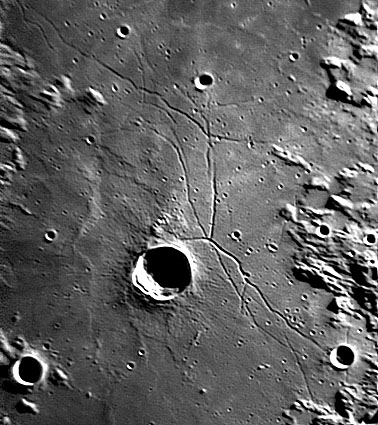Difference between revisions of "May 26, 2004"
| Line 31: | Line 31: | ||
<p align="center" class="main_titles"><b>Author & Editor:</b><br> | <p align="center" class="main_titles"><b>Author & Editor:</b><br> | ||
[mailto:tychocrater@yahoo.com Charles A. Wood]</p> | [mailto:tychocrater@yahoo.com Charles A. Wood]</p> | ||
| − | < | + | <!-- Cleanup of credits --> |
| − | + | <!-- Cleanup of credits --> | |
| − | < | + | <!-- Cleanup of credits --> |
| − | + | <!-- Cleanup of credits --> | |
| − | < | + | <!-- Cleanup of credits --> |
| − | + | <!-- Cleanup of credits --> | |
| + | <!-- Cleanup of credits --> | ||
<p> </p> | <p> </p> | ||
---- | ---- | ||
===COMMENTS?=== | ===COMMENTS?=== | ||
Register, and click on the <b>Discussion</b> tab at the top of the page. | Register, and click on the <b>Discussion</b> tab at the top of the page. | ||
| + | <hr> | ||
| + | <!-- | ||
| + | You can support LPOD when you buy any book from Amazon thru [[Support_ LPOD|LPOD]]! | ||
| + | --> | ||
| + | <span style="font-size:88%"> | ||
| + | <center> | ||
| + | Contributions to http://www2.lpod.org/ are licensed under a Creative Commons Attribution No-Derivative-Works Non-Commercial 3.0 License. [http://www.creativecommons.org/licenses/by-nc-nd/3.0 http://www.wikispaces.com/i/creativecommons/by-nc-nd_3.0_80x15.png]<br> | ||
| + | </center> | ||
| + | </span> | ||
Revision as of 11:14, 1 February 2015
Triesnecker Rilles
Image Credit: Tom Leech |
|
Triesnecker Rilles Most rilles fall into one of three categories: sinuous, linear or arcuate. But the rilles near Triesnecker don't. As this high resolution view by Tom Leech demonstrates they are mostly narrow and straightish with some tight curves. The NW-SE trending rille segments are approximately radial to Imbrium, but the N-S and E-W segments aren't. The rilles are not associated with overtly volcanic features such as domes or Cobra Head-like collapse pits. These are unusual, maybe unique rilles. Ejecta from Triesnecker appear to cover the rilles, which must thus be older than that crater. Because some of the rilles cut across other ones there must be an age progression; in general the thinner rilles seem to be older than the wider, more pronounced ones. If these razor thin rilles, like larger linear ones, are surface expressions of igneous dikes, they would have had to be very close to the surface. This is the place in an LPOD writeup where I often provide an explanation, but I don't know why these rilles are here! Technical Details: Related Links: Tomorrow's LPOD: The Jura and a Missing Rim |
Author & Editor:
Charles A. Wood
COMMENTS?
Register, and click on the Discussion tab at the top of the page.
Contributions to http://www2.lpod.org/ are licensed under a Creative Commons Attribution No-Derivative-Works Non-Commercial 3.0 License. 




